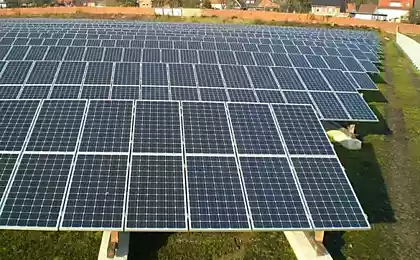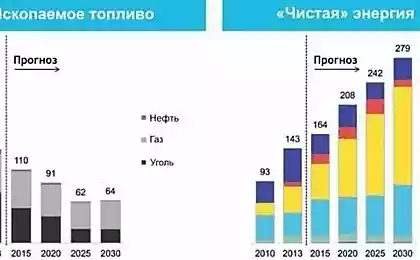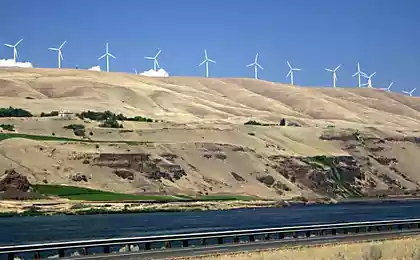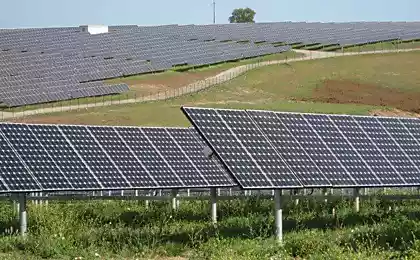174
Germany sets new record for clean energy – 75%
Germany’s strategic goal of producing 80% of its electricity from renewable sources seems to be ahead of schedule. At the same time, as we wrote on the pages of FacePla.net, Germany, following Japan, completely abandons nuclear energy due to the events at the Fukushima nuclear power plant.
Last Sunday, Germany set a new record: the share of renewable energy in the country’s energy system was 75% in the daytime. Of course, it should be noted that this record was set at noon on a weekend, when electricity consumption drops to a minimum. But even in these gentle conditions, the figure is striking.
For the first quarter of 2014, Germany set another record - 27% (42 billion kWh) in the country's energy mix was made up of renewable energy sources. More than a quarter of the country’s energy was produced on its own without Iraq’s oil and Russian gas. A great example of the path to energy independence.
Until now, it was believed that only developed European countries lead in the development of alternative energy sources, however, if we consider the ratio of investment in solar energy, for example, in Bulgaria to GDP, this small country ranks first in the world, and Germany is only in third place after the Czech Republic. They are followed by Italy, Greece, Slovakia, Belgium, Slovenia, Spain, Ukraine. At the same time, Bulgaria refused to produce shale gas under public pressure due to possible irreversible environmental consequences for the region.
Of course, the reason for the record pace of development of renewable energy is not the struggle for the environment or carbon dioxide emissions into the atmosphere, but poverty, yes, poverty of deposits of available fossil energy resources and their exhaustion.
The twentieth century demonstrated that energy is everything, it is water, it is food, it is housing, it is transportation, it is weapons. A country dependent on external sources of energy becomes extremely vulnerable and defenseless to the supplier, as demonstrated by the experience of Ukraine, mired in gas conflicts with Russia. But this experience further emphasizes the correctness of the chosen strategy, the strategy of local energy production and the rigid optimization of its distribution, storage and use.
Source: facepla.net
























